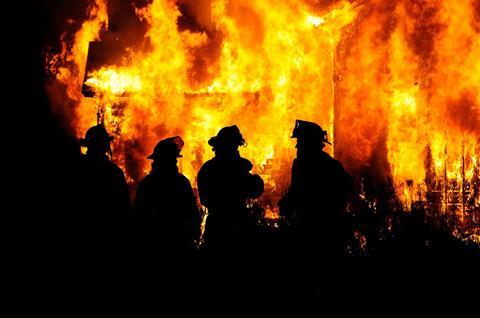Senior managers’ ignorance of issues within a company deemed irrelevant, as High Court attributes junior employees’ knowledge to the company as a whole

In a key judgment, the Court of Appeal has upheld the High Court’s decision that the manufacturer of a defective product installed to prevent fire was not liable for a fire which destroyed a factory.
The rationale was that employees of the factory were aware of the malfunction and had introduced an alternative system to avoid fire, rather than rely on the faulty device.
The facts
The Litigant, Howmet, manufactured precision components for the aerospace industry. Part of its manufacturing process included dipping metal castings into a series of tanks containing hot acid and water known as a grain etch line (“GEL”). The tanks in the GEL included various “thermolevel” sensors, designed to measure both the temperature and level of liquid in the tanks, and to switch off the heater if the liquid fell below a specified level to prevent fire. Economy Devices Limited (EDL) was the manufacturer of these thermolevels, which were installed in late 2006.
In December 2006 and January 2007, one of Howmet’s heated tanks caught fire on two separate occasions. These were quickly extinguished by staff and no lasting damage was done. After the second of these fires, Howmet appreciated that the fire had occurred because the thermolevel had not functioned as intended.
Howmet bought an alternative safety device to fit to the tank to avoid further incidents, and informally introduced a system of regular manual checks to the GEL in the meantime. However, in February 2007, after the new device had been received, but before it had been fitted, there was a further fire originating in the same tank, which destroyed much of the factory, causing £20 million of damage.
Howmet brought proceedings against Economy Devices Limited for:
- negligence in the design and manufacture of the thermolevels; and
- breach of its statutory duty under the Electrical Equipment (Safety) Regulations 1994 in failing to make products which:
- were ‘safe’ (within the meaning of those Regulations); and
- carried CE markings to confirm that they conformed with the Regulations.
High Court decision
A High Court judge found that expert evidence established the thermolevels had various shortcomings and were unreliable as a critical safety device. He found that Howmet personnel including its facilities manager and plant engineering technician knew this, and attributed that knowledge to Howmet. Howmet was not therefore as a matter of fact relying on the thermolevel as a reliable safety device, instead relying on operator vigilance and a new procedure of leaving the heated tank empty and switched off at the weekend to avoid further incidents.
On Howmet’s negligence claim, the High Court found that Howmet could not prove that it was the thermolevel’s shortcomings which had caused the fire, and so it failed in its negligence claim. As to Howmet’s claim for breach of statutory duty, the Court decided that Economy Devices Limited had breached its statutory duties because the thermolevel was unsafe and did not bear a CE marking. However, since as a matter of fact Howmet had not been relying on the thermolevel as a reliable safety device in the days preceding the fire, its failure was not the effective cause of the fire.
Court of Appeal
Howmet appealed the High Court decision on the grounds that the judge erred in:
- attributing junior staff members’ knowledge of the malfunction to Howmet;
- his treatment of reliance in negligence and breach of statutory duty.
Attribution of Knowledge
The Court of Appeal therefore considered whose knowledge about the malfunctioning of the thermolevel, and whose decisions about the continued operation of the GEL, could properly be attributed to Howmet. After reviewing the authorities on the attribution of knowledge to corporate entities, the Court of Appeal determined that it was appropriate to attribute to Howmet the knowledge and decisions of those staff to whom the directors of Howmet had entrusted the task of maintaining and operating the GEL in a safe manner. It found that there were three managers and three operators responsible for the GEL who knew of the issues with the thermolevels, and the collective knowledge and decisions of those individuals – even though they were not at board level, or indeed all senior managers – should be attributed to Howmet. Howmet did therefore have the requisite corporate knowledge.
Negligence & Breach of Statutory Duty
The Court then assessed the negligence claim. It revisited the principle evinced in Donoghue v Stevenson that a manufacturer owes a duty to the end user to take reasonable care to ensure that a product will not cause personal injury and damage to property. But the court noted there are restrictions on this principle, for example where a defect is discovered before damage is actually caused, as in Howmet’s case.
Howmet was aware that the thermolevel was not reliable, and had introduced a new procedure to avoid further fires. The Court therefore found that the effective cause of the fire was not the failure of the thermolevel, but the failure of the alternative system Howmet had put in place.
The Court therefore decided that due to a lack of reliance on the thermolevel, Howmet’s negligence claim failed, and that this could be expressed in one of two ways – either Economy Devices Limited was under no continuing duty to Howmet in respect of the thermolevel, or any breach of duty by Economy Devices Limited did not cause Howmet’s loss.
Howmet’s lack of reliance on the thermolevel at the time of the fire meant that its claim for breach of statutory duty also failed.
Comment
Perhaps the most interesting facet of this case was the Court’s comments on what knowledge is to be attributed to a company. Howmet argued that the individuals who had knowledge of the malfunction were relatively junior, and so that knowledge should not be attributed to the company to defeat its claim when the products were defective. The Court’s approach was effectively that if certain personnel had been entrusted by the directors with the safety of the GEL, their knowledge and decisions on that matter were to be attributed to the company. In his leading judgment, Lord Justice Jackson added: “If one person in the corporate hierarchy becomes aware of a dangerous situation in the workplace which in breach of duty he fails to report up the line, in subsequent litigation the company cannot rely upon the ignorance of its more senior managers”.
Things to remember
The most important lesson to take from this case is that of caution: if you delegate a role to someone within your business, regardless of their seniority, their knowledge could be attributed to the company, and this may have unintended ramifications in the event of an incident in the workplace.
Therefore, where key tasks have been delegated within your company, ensure that effective reporting lines are established and used to ensure those in senior positions are actually made aware of any issues, particularly where they may have an impact on safety.




















No comments yet